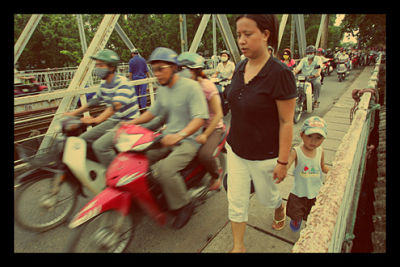- Mar 11, 2015
- 77,185
- 34,501
- 2,330
12.3 percent
The narrative pushed by some in the white community to dismiss racism by comparing blacks to Asians is disingenuous.
Asian-Americans: Smart, High-Incomes And ... Poor?
Now, we have another perspective on poverty in a place you might not expect to find it or, rather, among a group of people. May is Asian-American Heritage Month and, over the course of the month, you might have heard it said that Asian-Americans enjoy the highest income and level of educational attainment of any racial group in this country.
So it might surprise you to know that Asian-Americans also experience a higher rate of poverty than non-Hispanic whites. According to a National Academy of Science's analysis of census data, Asian-Americans have a 12.3 percent poverty rate. That compares to 9.8 percent for non-Hispanic whites.
We wanted to talk more about this, so we've called Algernon Austin. He is the director of the Race, Ethnicity and the Economy Program at the Economic Policy Institute. That's here in Washington, D.C. He's written about the issue for the institute.
MARTIN: Also with us, Rosalind Chou. She's a sociology professor at Georgia State University. She's also co-author of the book, "The Myth of the Model Minority: Asian-Americans Facing Racism."
MARTIN: So, Mr. Austin, I'll start with you. The Pew Center found that Asian-Americans have a significantly higher median income than the general population. Sixty-six thousand dollars a year compared to just under $50,000. The first question, you know, that comes to mind is, how is it possible that the median income is higher, but there's still a significant poverty rate?
AUSTIN: Well, the Asian-American population is quite diverse and there are many highly educated Asian-Americans, but the actual Asian-American population that does not have a high school diploma is actually higher than the white race, so you also have significant numbers of low wage earners among Asian-Americans.
CHOU: The thing about the Asian-American group is that it encompasses over 50 nations and then there are different ethnicities involved in that, as well, so it's a large group that's lumped together. And, with that, there are different types of immigration that have happened that affect whether they're refugee status or they came over for educational purposes or work purposes.
So, with that, Cambodian, Lao, Hmong, Vietnamese - they're largely immigrated to the U.S. via political or refugees because of war and, in that case, their circumstances are different that would affect their educational attainment and their income levels.
CHOU: In my research, I've also found that the Hmong, in discussing education and culture with them, my Hmong respondent said, in their culture, it wasn't valued over family and agriculture. And what you'll find in the Midwest, the Hmong population - there's a lot of ginseng farming, not that push for educational attainment and just, in general, those groups still don't overshadow the fact that even East Asian descent Asian-Americans have higher rates of poverty and still higher rates of not having a high school education or less than a high school education, as well.
MARTIN: You know, Professor Chou, your book is called "The Myth of the Model Minority," which suggests that there really isn't perhaps a general understanding that poverty exists among Asian-Americans. Do you think that there is some consequence to that?
CHOU: Absolutely. So the first consequence is, externally, people not realizing that there are issues with this racial group. Then, in my research, I found that many Asian-Americans were discouraged to talk about any problems they had that had to do with perhaps racial discrimination, that families even encouraged their children to not say anything and don't rock the boat.

Asian-Americans: Smart, High-Incomes And ... Poor?
Asian-Americans have the highest income and education levels of any racial group in the country. So it might be surprising that they have a higher poverty rate than non-Hispanic whites. Michel Martin discusses the issue with Algernon Austin of the Economic Policy Institute and Rosalind Chou...
ASIAN AMERICANS FACING HIGH POVERTY RATES
It is often assumed that Asian Americans are one of the minority groups in the United States that is doing well economically. However, this statement too broadly categorizes all Asian subgroups.In fact, amongst poor Asian Americans, Southeast Asians face some of the highest poverty rates in the whole country. Researchers at the University of California, Los Angeles conducted a study on income sources, home foreclosures and housing burden. The study indicated that Southeast Asians in the United States have consistently relied on food stamps for many decades. Moreover, language barriers are still major roadblocks that prevent Southeast Asian Americans from entering new labor markets.
The poverty rate for Asian Americans is highest amongst Hmong, Cambodian, Laotian and Vietnamese. Hmong Americans have a startlingly high poverty rate at 37.8%, followed closely by Cambodian Americans at 29.3% and Laotian Americans at 18.5%.

Truth Behind the Poverty Rate for Asian Americans - The Borgen Project
Many believe there is no poverty rate for Asian Americans and see as a successful ethnic group. But Asian Americans face poverty same as other racial groups
 borgenproject.org
borgenproject.org

asian poverty america - Bing
Intelligent search from Bing makes it easier to quickly find what you’re looking for and rewards you.
Painting a whole race with a broad brush is often done to Asians in this forum.

